The official opening ceremony of Malta's EU presidency was held this evening at the Mediterranean Conference Centre in Valletta, with Prime Minister Joseph Muscat officially being entrsuted with the leadership of the EU for the next six months in the presence of Eddie Fenech Adami, former Nationalist Prime Minister who was the mastermind behind Malta's accession to the European Union, and Lawrence Gonzi, the Prime Minister under whom Malta became a member state on 1 May, 2004.
Prime Minister Joseph Muscat and a number of high ranking officials, including Commission President Jean Claude Juncker, delivered speeches on the road ahead and opportunities to effect real change in the lives of EU citizens.
Dr Muscat, who had campaigned against Malta's membership but, after the referendum result, went on to become an MEP and is now leading the bloc, said that the biggest challenge for the Presidency and for all EU institutions is to be realistic and pragmatic.
“One cannot expect to solve the world’s problems in six months. We must offer small, useful solutions that make a difference,” he said.
He stressed the persistent disconnect that can be felt by politicians and ordinary citizens:
“We respond to questions that nobody is asking at the workplace, around the dinner table or while grocery shopping. This makes people say that, the politicians have such a little understanding of me and my life, how can I expect them to represent me?

“Our first job is not a massive one, but to identify the questions that the public want us to answer. If we manage to do this, if we achieve this, we would be closer than ever before and would allow for meaningful change. It would generate values that squash populist sentiment, and would show a unified front.
He spoke about the most complex problems plaguing not just the EU but the whole world, such as security, terrorism, migration and a stalling economy.
Dr Muscat spoke of wishes to solve issues such as removing mobile roaming charges, ensuring nobody is discriminated against when buying online and a number of other practical issues. He said that while not everything can be solved, being realistic will allow for some meaningful change.
“We have the opportunity to send a strong signal, the message that we are placing people at the centre of our work. This is a reunion – allowing for efforts to get back to the people.

Commission President Jean-Claude Juncker said that the beauty and historic value of this concert is symbolic of Malta.
He expressed his excitement of Valletta being made European Capital of Culture for 2018, and praised the beauty of the capital city.
“Malta will take a perennial role in the EU’s development. Malta maybe a small country, but it has great ambitions. Coming from Luxembourg I am well aware of what it means to come from a small state. It is prepared in the best possible way for the Council presidency. We must show unity and forge ahead with the priorities set. The Valletta summit on 3 February will provide a valuable opportunity to display achievements and carry on with our priorities.”
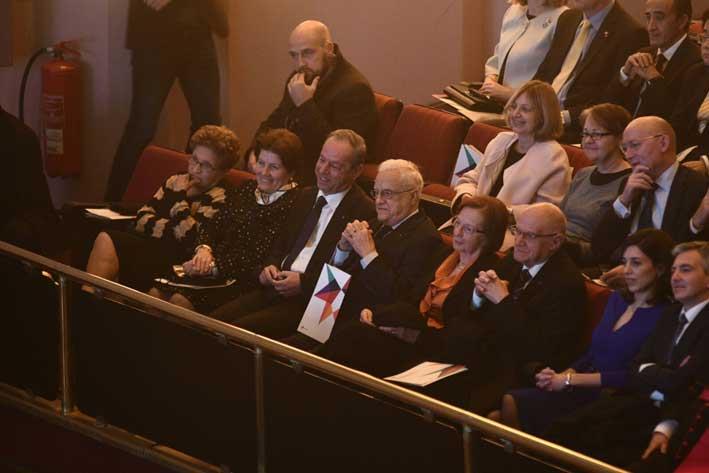
Mr Juncker made a humorous and commendable effort to say Awguri ghas-sena tajba (best wishes for the upcoming year), to loud applause.

Deputy Prime Minister Louis Grech cautioned against the rise of extreme nationalist, anti-EU sentiment that is taking hold over Europe. He cited the stalling economy and a number of other factors that have contributed to this.
He called the upcoming year to be a “decisive” one for all the EU, in the light of elections in France, the UK triggering its exit clause from the EU (Brexit) and the persistent challenges of migration.
“Citizens are asking whether the EU is a positive and relative force today. We must stand up and respond to such sentiment. It would be a big mistake to allow a downward spiral, our duty is to come out with an exception response to such thinking. These are extraordinary times, that merit extraordinary action.
He concluded by quoting Mahatma Ghandi by saying “be the change you want to see in the world”.

Council President Donald Tusk said that this presidency comes at a challenging time, after a series of unforeseen events have taken place.
“We were lucky that this difficult role fell on Malta. Few have a better understanding of Italians, who will host celebrations of the anniversary of the Treaty of Rome, few have a better understanding of the British, who will be negotiating their exit, and lastly few have a better understanding of migration.”
He said that Malta is a perfect example of the history of European culture through a lens.

Parliamentary Secretary Ian Borg thanked all the individuals behind the scenes who worked tirelessly for Malta’s Presidency.
“This is your (the public’s) Presidency. We will work for you, without distinction, to make a tangible difference in your lives. We will work for our efforts to be communicated with the public, and acknowledge the need for better communication.
“We must put citizens at the heart of Europe, Malta is small but we are optimistic that we can make a difference.
“Let us let nothing and nobody spoil the efforts we are making to improve the lives for all. I am convinced that Malta will leave a lasting mark on the history of the EU,” he concluded.
***


The ceremony included a performances by ZfinMalta and the Malta Philharmonic Orchestra.
This will be the first time that Malta took over the Presidency, and will allow for it to shape the EU's priorities and agenda. Among Malta's top priorities, in line with that of the European Commission, are that of migration, security and the strengthening of the economy. The UK's exit from the EU will also feature heavily in the six month programme.
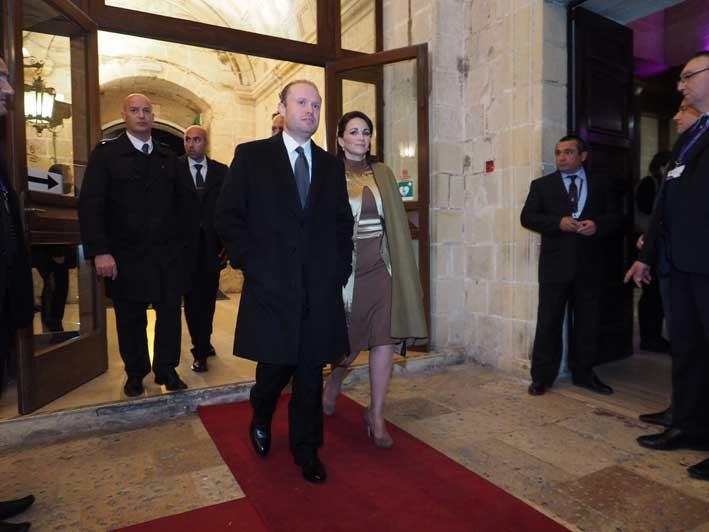
Prime Minister Joseph Muscat at his wife Michelle
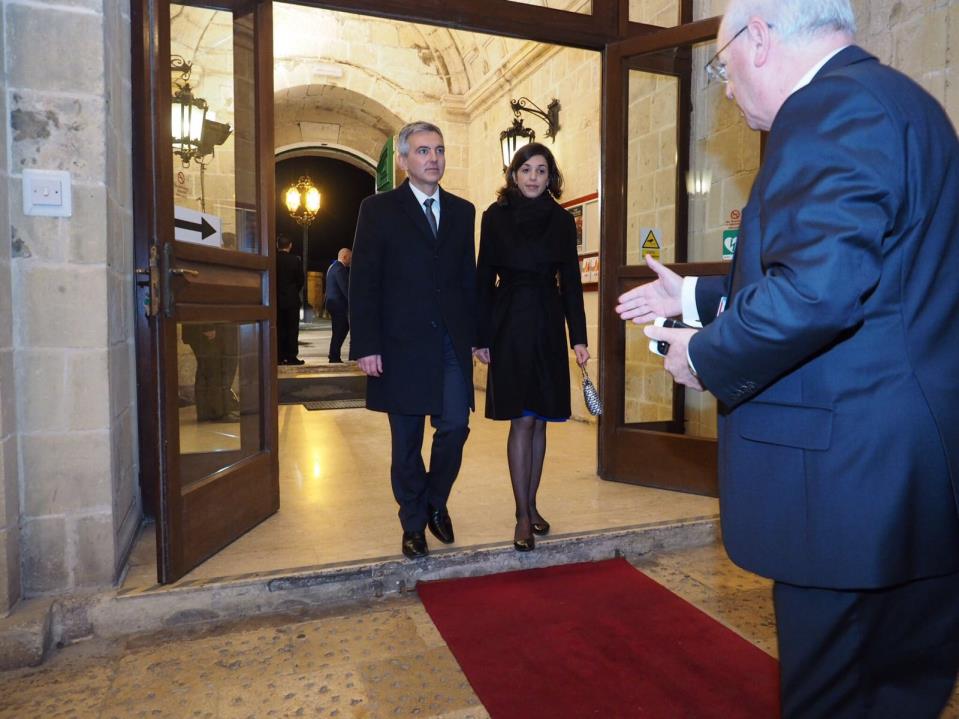
Opposition leader Simon Busuttil with his partner Kristina Chetcuti:
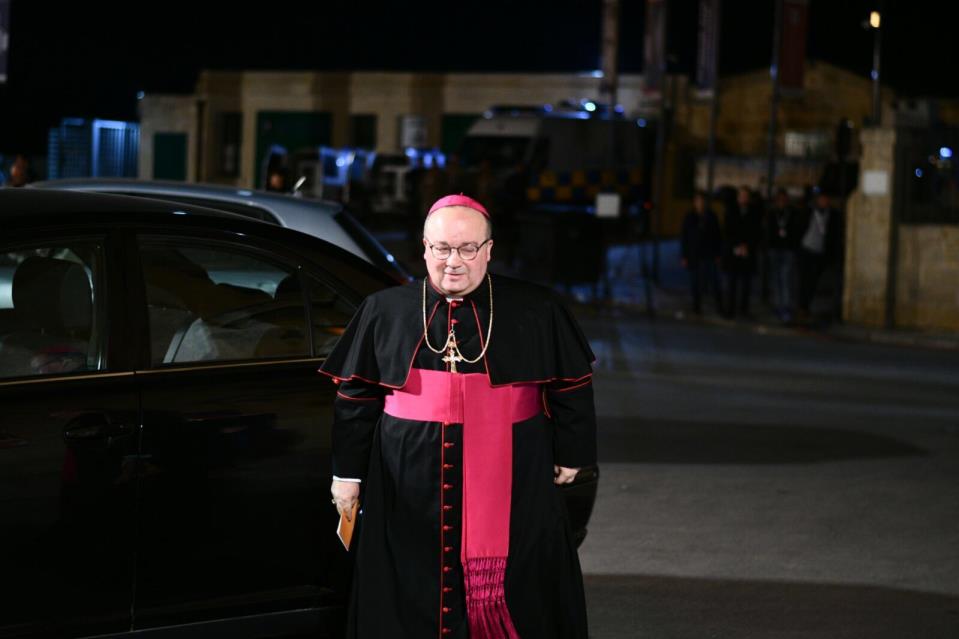
Archbishop Charles Scicluna

Finance Minister Edward Scicluna
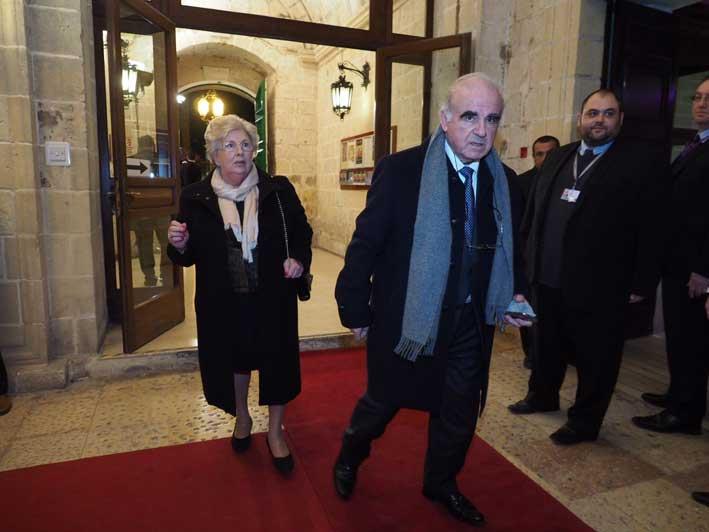
Foreign Affairs Minister George Vella
Photos: Jonathan Borg and Michael Camilleri